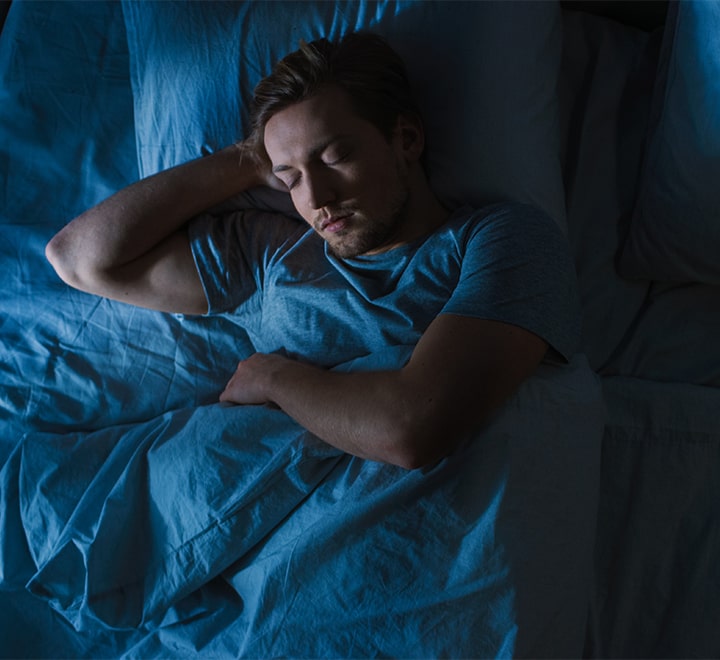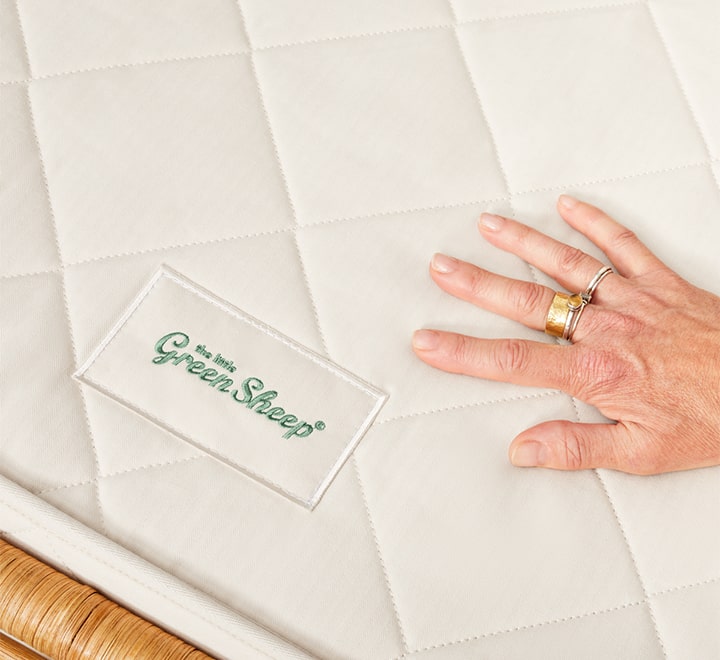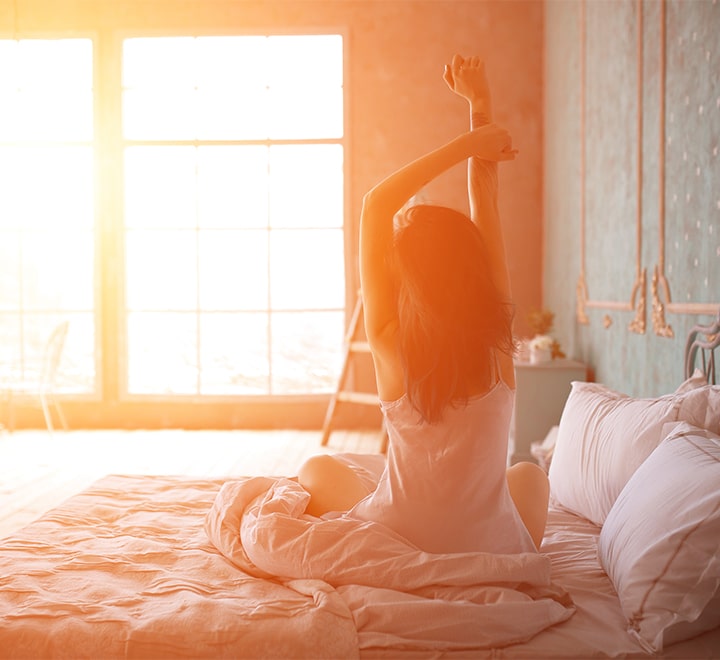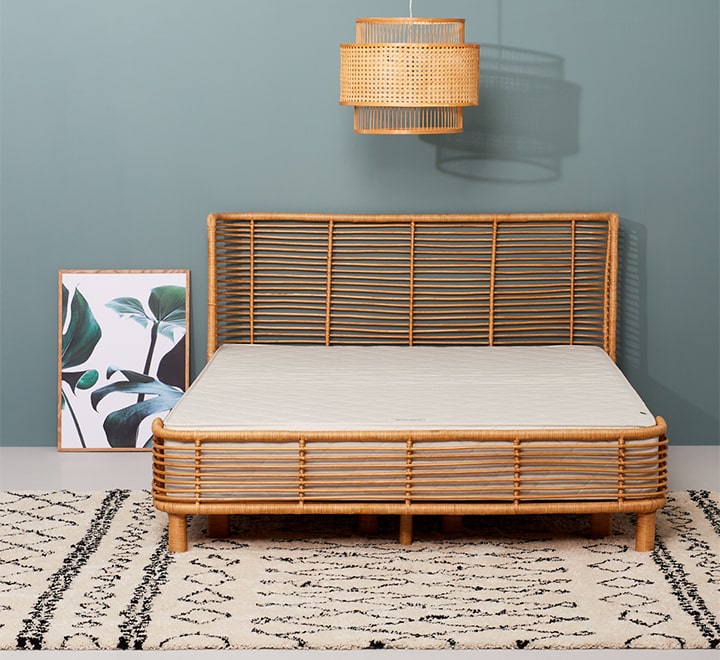We’ve written all kinds of content around how to help little ones get to sleep, but how about how to get your Zzz’s in as an adult? Read on for tips, advice and information on how to get a better night’s sleep.
The NHS recommends that most adults need 6-9 hours of sleep every night, and whilst 9 hours is often cited as the ‘optimum’ amount by many, there’s no set and agreed upon length that’s considered ‘normal’. ‘Normal’ most often depends on people’s varying schedules, routines, and lifestyles. While 6-7 hours sleep a night might be ideal for some, others may swear by 8-9 and be useless on less.
What truly counts is consistency, as waking up at the same time every day can help adjust and settle your circadian rhythm. The same can be said for the time you go to bed, as keeping regular hours will help you fall asleep more easily

A high-quality mattress is what lays down the foundation of a good night’s sleep. This is why we’ve designed our Natural Pocket Sprung Mattresses to feature only the finest natural materials, expertly layered for a luxuriously comfortable night’s sleep. Free from any nasties or fire retardant sprays, sleep with peace of mind in a pure and natural sleep environment.
Our mattresses also offer a unique dual-sided support, meaning you can choose between medium and medium-firm support to suit your preference. Simply flip the dual-sided natural mattress to achieve the right support for you. A great night’s sleep has never been so easy!

As with keeping regular hours in the morning and evening, try to expose yourself to natural light at a similar time each morning. Whatever the weather, natural light can help reset your internal clock and ease the grogginess you might feel after having just woken up.
Outdoor exercise, even if it’s low impact and gentle, is also a great way to ease yourself into the day, especially if you do it outside. However for those of us who aren’t early birds and favour exercising in the afternoon or evening, ideally try and fit it in 2 or more hours before bedtime to avoid disrupting your sleep.

You’ve likely heard this many times before, but it bears repeating that electronics including phones, televisions, laptops etc are best avoided before bedtime. The reason for this is that the blue light emitted from most modern devices can interfere with your body’s ability to prepare for sleep, as it stops the sleep-inducing hormone melatonin from being released. It’s recommended that you step away from the screens at least 30 minutes to 1 hour before bedtime.
It goes without saying that diet can have a huge impact on your sleep. Stimulants such as caffeine and sugar can keep people up and jittering, and should be avoided before bed to avoid a sleepless night. If you do decide to consume sugar or caffeine, ensure enough time is left since your last intake and your bedtime to avoid sleep disruption.
Ensuring you eat your three meals a day at regular times offers the same benefits as keeping regular sleeping and waking times, by strengthening your internal rhythms. However, remember that eating or drinking heavily before bedtime can have adverse effects on your sleep by causing restlessness and increasing your chances of waking during the night. The same applies to eating or drinking too little, so make sure you strike the right balance before you go to bed.
Despite being a sedative, alcohol can have a negative impact on sleep, with people often not feeling very well rested after a night of heavy drinking.
As with sleep and wake times, temperature can be such a personal thing when it comes to a good night’s rest. Preference often comes down to the climate people live in and what they’re used to, as well as their tolerance to hot and cold temperatures. However, The Sleep Foundation advises that along with keeping our sleep environment as dark as possible, maintaining an optimal temperature of between 15.6 to 19.4 degrees Celsius can help us achieve the most comfortable night’s sleep.
Ensure the bedroom is cool, dark and quiet before bedtime. The wrong temperature, light, and noise interference can all impact our ability to get off to sleep, and increase the chances that we wake in the night, even if we don’t realise that is the reason for us being awake.
The true secret to a good night’s sleep is in creating the ideal sleep environment. Along with lighting and temperature, this may also involve creating a natural space that's as calming and relaxing as possible.
Also, try and avoid bringing work to bed. Whether that’s your work-from-home set-up, or simply checking your emails on your phone, keep anything stress-inducing away from your sleep space. Doing so will ensure that your bedroom remains a sacred, relaxing place for your body and mind to wind down in.

As it happens, there’s a lot of things that can affect your sleep as an adult. So, when faced with the odd restless night, be gentle with yourself, and remember that a bad night can happen to even the soundest of sleepers. Should you find yourself dealing with persistent sleep issues, be sure to seek advice from a trained medical professional to help identify and treat the cause.
If you’re looking to invest in a better night’s sleep, we offer a 100-night free trial on all of our adult Natural Pocket Sprung Mattresses. While we’re confident you’ll sleep like a baby from the get-go, we want you to have 100 nights to make sure you really love it.
If for whatever reason it’s not a match, don’t lose sleep over it. We’ll arrange collection and issue your refund, no questions asked. To learn more about our range of adult mattresses, and which support is right for you, read all about them on our blog today.